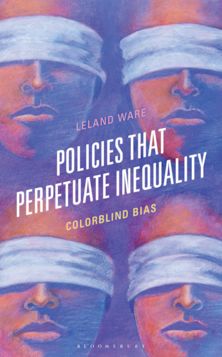Precarious Work, Women, and the New Economy
The Challenge to Legal Norms
Precarious Work, Women, and the New Economy
The Challenge to Legal Norms
This product is usually dispatched within 3 days
- Delivery and returns info
-
Free US delivery on orders $35 or over
Description
Globalisation, the shift from manufacturing to services as a source of employment, and the spread of information-based systems and technologies have given birth to a new economy, which emphasises flexibility in the labour market and in employment relations. These changes have led to the erosion of the standard (industrial) employment relationship and an increase in precarious work - work which is poorly paid and insecure. Women perform a disproportionate amount of precarious work. This collection of original essays by leading scholars on labour law and women's work explores the relationship between precarious work and gender, and evaluates the extent to which the growth and spread of precarious work challenges traditional norms of labour law and conventional forms of legal regulation.The book provides a comparative perspective by furnishing case studies from Australia, Canada, the Netherlands, Quebec, Sweden, the UK, and the US, as well as the international and supranational context through essays that focus on the IMF, the ILO, and the EU. Common themes and concepts thread throughout the essays, which grapple with the legal and public policy challenges posed by women's precarious work.
Table of Contents
1. Precarious Work, Women, and the New Economy: The Challenge to Legal Norms
JUDY FUDGE AND ROSEMARY OWENS
Part II Supranational Norms and Discourses about Precarious Work
2. Rights, Risk, and Reward: Governance Norms in the International Order and the Problem of Precarious Work
KERRY RITTICH
3.Gender, Precarious Work, and the International Labour Code: The Ghost in the ILO Closet
LEAH F VOSKO
4. Promoting Precariousness? The Response of EU Employment Policies to Precarious Work
DIAMOND ASHIAGBOR
Part III Working Time and Precarious Work
5. Time to Dream? Flexibility, Families, and the Regulation of Working Time
JOANNE CONAGHAN
6. The Need for a Reduced Work Week in the United States
VICKI SCHULTZ AND ALLISON HOFFMAN
7. Gender and the Legal Regulation of Employment Breaks
CLAIRE KILPATRICK
Part IV A Matter of Status? Protecting Precarious Workers
8.Precarious Norms for Precarious Workers
SANDRA FREDMAN
9. Self-employment, Women, and Precarious Work: The Scope of Labour Protection
JUDY FUDGE
10. The Regulation of Paid Care Work in the Home in Quebec: From the Hearth to the Global Marketplace
STÉPHANIE BERNSTEIN
Part V Old Laws/New Workers
11. The New Face of Employment Discrimination
KATHERINE VW STONE
12. On the Gendered Norm of Standard Employment in a Changing Labour Market
JENNY JULÉN VOTINIUS
13. The Legal Production of Precarious Work
ROSEMARY HUNTER
Part VI The Challenge of Flexibility
14. Flexibility and Security, Working Time, and Work–Family Policies
SUSANNE D BURRI
15. Engendering Flexibility in a World of Precarious Work
ROSEMARY OWENS
Product details
| Published | Apr 26 2006 |
|---|---|
| Format | Paperback |
| Edition | 1st |
| Extent | 432 |
| ISBN | 9781841136165 |
| Imprint | Hart Publishing |
| Dimensions | 9 x 6 inches |
| Series | Oñati International Series in Law and Society |
| Publisher | Bloomsbury Publishing |
Reviews

ONLINE RESOURCES
Bloomsbury Collections
This book is available on Bloomsbury Collections where your library has access.



































